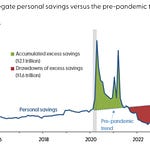So we all know about Elon Musk and his bid to acquire Twitter TWTR 0.00%↑ earlier this spring. Given that it is Elon Musk, having a smooth acquisition was not in the cards so of course drama quickly ensued.
Even though shares are trading at $38.98 and the offer price is $54.20 (so stupid), traders on the street are pricing in a deal happening at virtually zero. This is based on a pre-announcement price of $39.31 and a ($0.33) gain since then.
This, however, has changed dramatically over the last two months like a rollercoaster based on three main things:
Will the Twitter board even accept? (they did)
Does Elon even have the money? (he does)
Bots? (there always has been and they’ve been disclosed)
So this all has whipsawed the estimated percentage of the deal happening from no, to yes, back to no again. But here’s the thing though, this is no ordinary M&A deal. No no no this one is very interesting and I believe the opportunity to make money betting on this deal to happen is there.
Here’s why.
Twitter Holds All the Chips
More than a breakup fee
Musk and Twitter agreed to a so-called reverse termination fee of $1 billion. The breakup fee isn’t an option payment that allows Musk to bail without consequence. A reverse breakup fee paid from a buyer to a target applies when there is an outside reason a deal can’t close, such as regulatory intermediation or third-party financing concerns - financing he has.
A buyer can also walk if there’s fraud, assuming the discovery of incorrect information has a so-called “material adverse effect.” 👈🏼 More on this in a bit.
If Musk were to abandon a bid simply because he felt he overpaid, Twitter could sue him for billions in damages in addition to collecting the $1 billion fee. This has happened before, such as when Tiffany sued French luxury goods conglomerate LVMH in 2020 for trying to back out of its agreed-upon deal. That suit settled when Tiffany agreed to lower its sale price from $16.2 billion to roughly $15.8 billion.
Waived Rights to Due Diligence
Both sides signed a merger agreement, a detailed document stipulating exactly what each will do to ensure the agreed-upon deal closes, and what legal rights each has if the other doesn’t hold up its end of the bargain. It is similar to going under contract on a house.
Elon Musk was motivated to quickly negotiate a deal, and in doing so, agreed to a contract with several seller-friendly components. For example, he waived the detailed due diligence that buyers typically perform on targets (think of it like skipping a home inspection), and gave Twitter the right to sue him to follow through with the deal, a legal clause known as “specific performance.”1 See footnote 1 for more info on specific performance.
Arbitrage
Because of these two main facts, legally, Elon has given many of the chips to Twitter, and this is where the arbitrage opportunity comes into play. So, if the company (Twitter) has much of the legal backing to force Elon to make good on his deal, how will they do that? If push comes to shove, they will sue him.

One of the biggest concerns amongst current shareholders was if they thought Twitter management would even consider that. Luckily, they have publicly stated that they are willing to do so.
“The Board and Mr. Musk agreed to a transaction at $54.20 per share. We believe this agreement is in the best interest of all shareholders. We intend to close the transaction and enforce the merger agreement,” the board said.
In practice, suing can be difficult but often opens the door to settlement discussions.
The agreement between the two sides also requires Elon Musk to avoid disparaging Twitter and its representatives on the platform and his recent tweets could have crossed that line.
While Twitter could challenge the behavior, it appears more focused at the moment on closing the deal rather than launching relatively minor litigation that could run the risk of complicating things further.
Elon Looking for a Way Out?
Without citing a source, Musk claimed in a tweet that Twitter is "20% fake/spam accounts" and suggested Twitter's filings with the Securities and Exchange Commission were misleading. The company has said that less than 5% of its daily active users are spam accounts.

Even though his tweet put the deal at a presumed risk, Elon Musk declared it was "temporarily on hold" but that he's "still committed to acquisition."
"The bot issue at the end of the day ... feels more to us like the "dog ate the homework" excuse to bail on the Twitter deal or talk down a lower price," Dan Ives and John Katsingris, analysts at Wedbush Securities
The whole reason why this is funny is that he has commented before on Twitter’s bot problem (making him aware it exists) and that was partially the reason he wanted to buy it to fix it. Additionally, he waived his right to due diligence! The very thing meant to protect him! Talk about a joke.
Material Adverse Effect
Told you’d there would be more on this. If Elon wants to get out of this deal he can try and show Twitter has significantly changed for the worse since the deal was agreed upon, under a concept known as a “material adverse effect.”
If Elon Musk believes Twitter’s accounting of spam accounts was inaccurate when he signed the deal, his lawyers could attempt to litigate that issue in various ways, including as a material adverse effect, or possibly by alleging that Twitter misrepresented information in its filings. It is unclear whether they would succeed, though it could open the door to settlement discussions.
The bot problem is a longtime fixation for Musk, who has more than 96 million Twitter followers and whose name and likeness are often mimicked by fake accounts promoting cryptocurrency scams. Musk appears to think such bots are also a problem for most other Twitter users, as well as advertisers who take out ads on the platform based on how many real people they expect to reach.
Musk’s bot count skepticism was also taken up Monday by the chief legal officer of Texas, where Tesla is headquartered. Attorney General Ken Paxton, a Republican, said he’s launching an investigation because he has a “duty to protect Texans if Twitter is misrepresenting how many accounts are fake to drive up their revenue.” LOL
What Could Happen?
The deal could still happen and could close as soon as this summer if both sides keep moving forward. Twitter gave him the data he wanted in order for him to “analyze” how spam accounts get accounted for. Another possible outcome is that the two sides negotiate a settlement, especially if it becomes clear that Elon is intent on getting out of the deal or trying to lower the price.
Even when contract terms are clearly spelled out, more often than not deal clashes end in negotiated settlements that can include a price cut or one-time payments.
When Twitter agreed to sell itself to Musk for $54.20, the board didn’t bother pushing for a higher price in part because there were no other interested buyers at that price. Twitter’s board came to the conclusion it wasn’t likely to soon return to trading at higher levels given this year’s valuation decline in peer stocks such as Facebook and Snap.
Twitter’s best outcome may just be to accept a lower offer from Musk.
Bottom Line
While the market doesn’t believe this deal will happen, it looks like Elon has shot himself in the foot with this one.
Unless Twitter has somehow lied about its bot account, which by no account seems to be the case, then the law of the merger agreement entirely seems to be on their side.
For this reason, we’ve taken a position in Twitter with the expectation that the deal will close at the original price (whether organically or through a judge) or will close at a reduced-priced (higher than today).
Until next time,
Paul Cerro | Cedar Grove Capital











